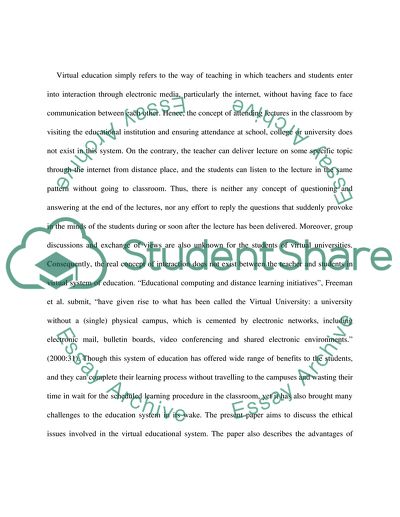Cite this document
(“Ethical issues in virtual education Essay Example | Topics and Well Written Essays - 3250 words”, n.d.)
Ethical issues in virtual education Essay Example | Topics and Well Written Essays - 3250 words. Retrieved from https://studentshare.org/education/1568383-ethical-issues-in-virtual-education
Ethical issues in virtual education Essay Example | Topics and Well Written Essays - 3250 words. Retrieved from https://studentshare.org/education/1568383-ethical-issues-in-virtual-education
(Ethical Issues in Virtual Education Essay Example | Topics and Well Written Essays - 3250 Words)
Ethical Issues in Virtual Education Essay Example | Topics and Well Written Essays - 3250 Words. https://studentshare.org/education/1568383-ethical-issues-in-virtual-education.
Ethical Issues in Virtual Education Essay Example | Topics and Well Written Essays - 3250 Words. https://studentshare.org/education/1568383-ethical-issues-in-virtual-education.
“Ethical Issues in Virtual Education Essay Example | Topics and Well Written Essays - 3250 Words”, n.d. https://studentshare.org/education/1568383-ethical-issues-in-virtual-education.


